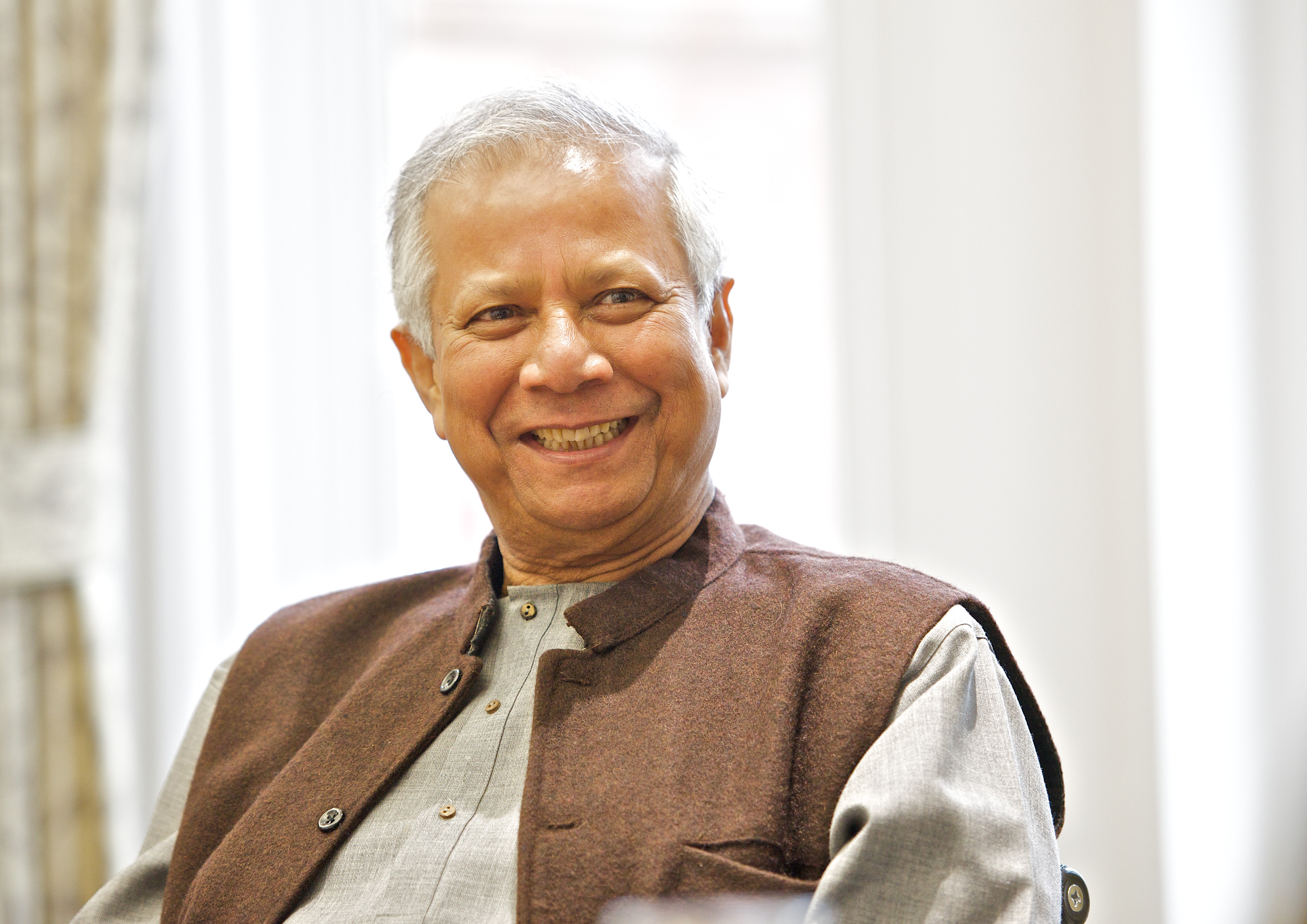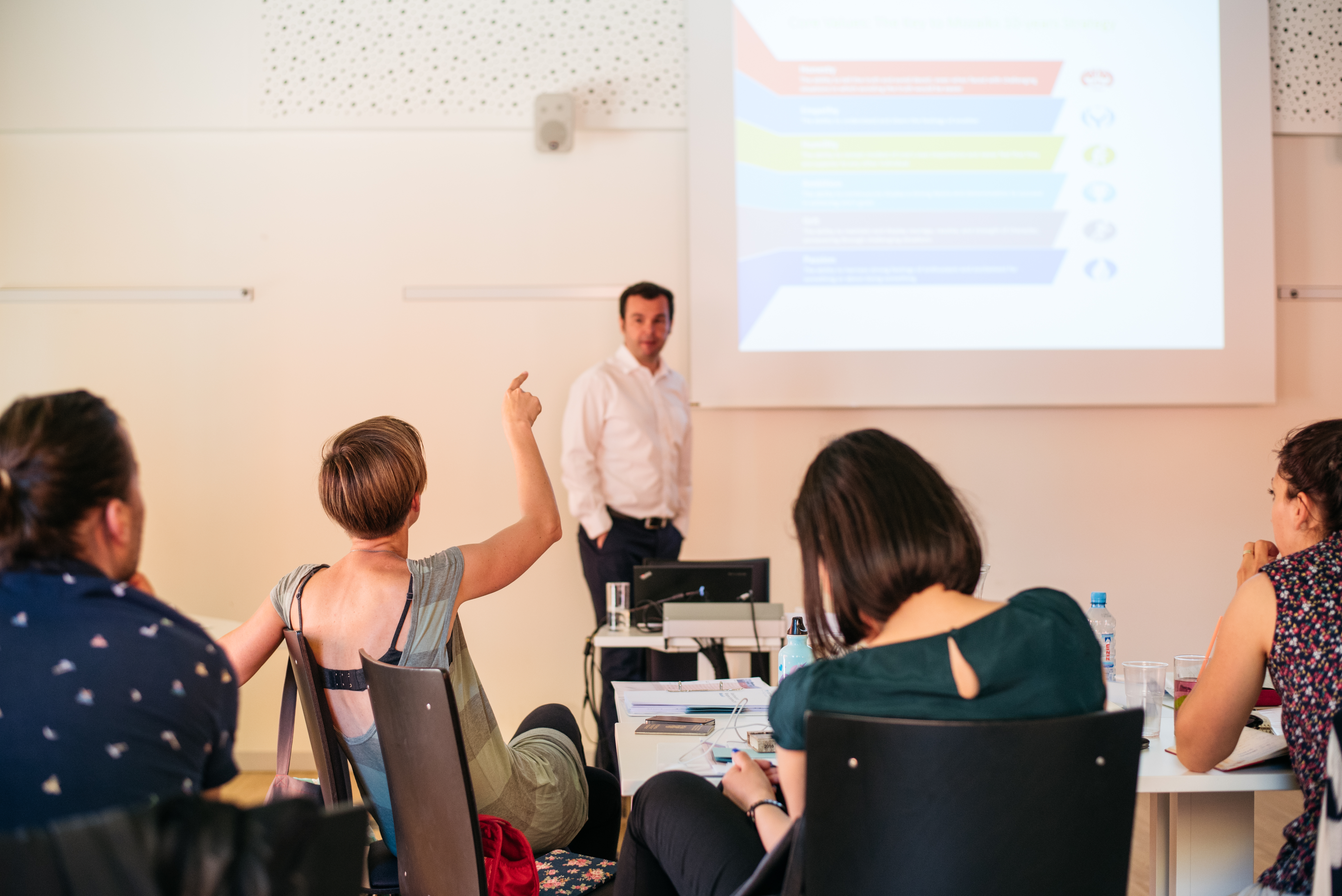07 February 2018
Originally published
05 December 2017
Source
Over the past decade the term social business has come to refer to companies dedicated to solving social problems
“Our dishes are a special treat in a political, aesthetic and culinary sense”, reads the website of the Vienna start-up Migrating Kitchen. This catering service, which organises events and prepares office lunches, differs from its competitors in one major way: Its staff members, who serve fresh meals and baked goods to customers on a daily basis, are refugees and migrant workers. Here in Vienna’s fifth district, they have been integrated into the labour market and have found stable employment. “Syrian, Algerian, Caribbean and Styrian [Austrian]” influences are reflected in the selection and preparation of the dishes on offer.
Migrating Kitchen is considered a social business. The term describes companies that are committed to solving social problems while still aiming to make a profit. They usually reinvest their earnings and distribute, at most, only a small percentage of those earnings to investors.
Funded for the first time
The number of such organisations is on the rise – across the globe and in Austria, where, for the first time, relevant companies were funded by the Ministry of Social Affairs and the National Foundation for Research, Technology and Development as part of a social business call launched by the funding agency AWS in 2017.
Each selected project was eligible to receive a non-repayable grant of up to €100,000. The entire funding amount totalled €3 million. The funding module of the Ministry of Social Affairs was dedicated to labour market integration, while that of the National Foundation was geared towards innovative products and services in the social sector. Migrating Kitchen was one of the projects that received a grant.

Professor Muhammad Yunus is a social entrepreneur, banker and economist who has been awarded the Nobel Peace Prize. Photo: (CC BY 2.0) Nick Harrison / Salford University Press Office.
The principle behind socially oriented companies isn’t new at all. “Raiffeisen and Erste Bank also started out as a sort of social business – although no one called them that back then,” explains Peter Vandor, who conducts research in this area at Vienna University of Economics and Business. Even these cooperatives maintained a strict separation between profit orientation and social objectives. “What is new is the societal discourse on social business that has developed over the past decade.”
The emergence of this new generation of socially-minded companies is generally associated with Muhammad Yunus. The Bengali economist, who hails from what today is Bangladesh, is known for having established the concept of micro-finance – meaning the provision of microloans to aspiring entrepreneurs in poor parts of the world. Yunus was awarded the Nobel Peace Prize in 2006. “Yunus also strongly promoted social businesses, but he was definitely not the only one doing so. However, he did become the poster child for an entire movement,” says Vandor.
Trend among millennials
The economy of the past decade was marked by an enthusiastic embrace of start-ups. This period also saw the coming-of-age of millennials, who believe that for working life to be fulfilling, it must provide meaning that goes beyond financial security. “Social entrepreneurship can be seen as a combination of these two trends,” says Vandor. “Fifteen years ago, people aspiring to become social entrepreneurs were still considered crazy; today universities teem with students who want to launch a social project.”
In his lectures dealing with social businesses, Vandor gives his students real-world projects to tackle from the very beginning. “Organisations such as Caritas Vienna approach us with questions, and students work through issues such as how to design innovation management in such a social business,” explains Vandor.

ERSTE Foundation supports non-profit organisations and social businesses as part of the ERSTE Foundation NGO Academy during a three-week Social Innovation and Management Programme at WU Vienna. Photo: © Igor Ripak / ERSTE Foundation.
Estimates suggest that one in three or four newly founded companies pursues a social objective in one way or another. According to a 2015 study by Vandor and his colleagues, between 1,200 and 2,000 companies in Austria are social businesses. Experts believe this number will experience a twofold to tenfold increase by 2025.
Focussing on refugees
A great many of the 21 projects funded as a result of the AWS call aim to integrate refugees into the labour market. Among them are Café Namsa, Fräulein Fair, Caramel, Refugeeswork.at, Topfreisen and Migrant Kitchen. “What I find fascinating is that many of these companies started even before the height of the big influx of refugees in 2015,” says Vandor. “This shows that social businesses have a good sense of current needs.”
Other projects provide support to the homeless, disadvantaged youth, senior citizens or people with special needs. They use technology to bring people together and raise awareness of stigmatised issues, or they provide marginalised people with access to technology. All of them offer a perspective on what a capitalist economic system could look like when it does not forget the weaker members of society.
Original in German. First published on 5 Dezember 2017 on derStandard.at.
Translation from German to English by Barbara Maya.
This text is protected by copyright: © Alois Pumhösel/DER STANDARD. If you are interested in republication, please contact the editorial team.
Copyright information on pictures, graphics and videos are noted directly at the illustrations. Cover picture: © Dejan Petrović / ERSTE Foundation.